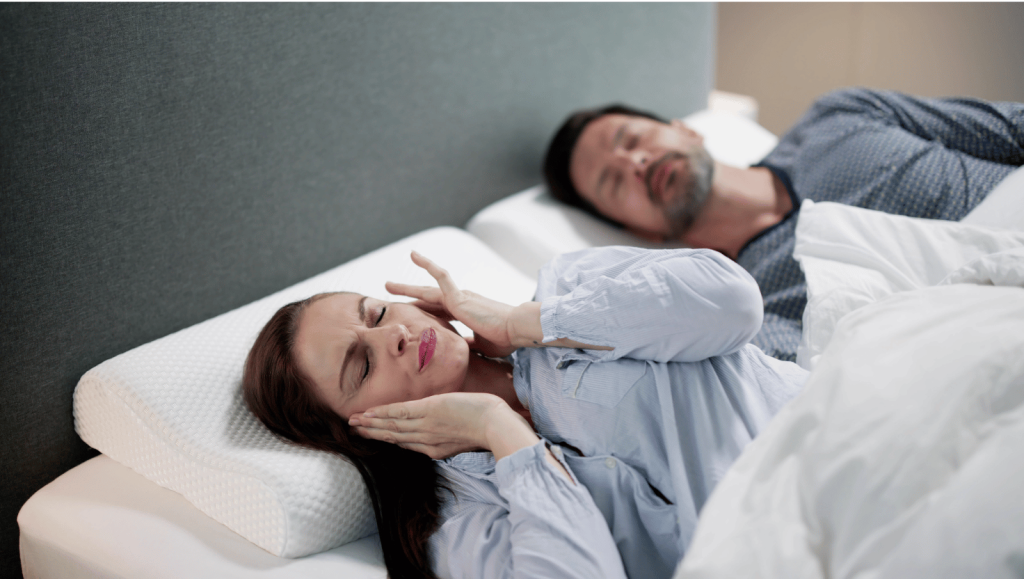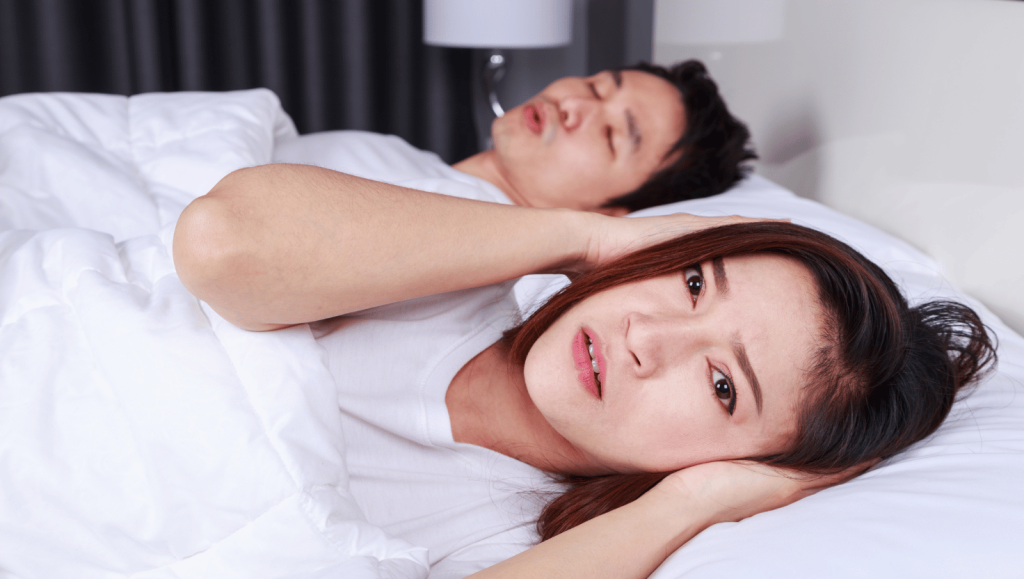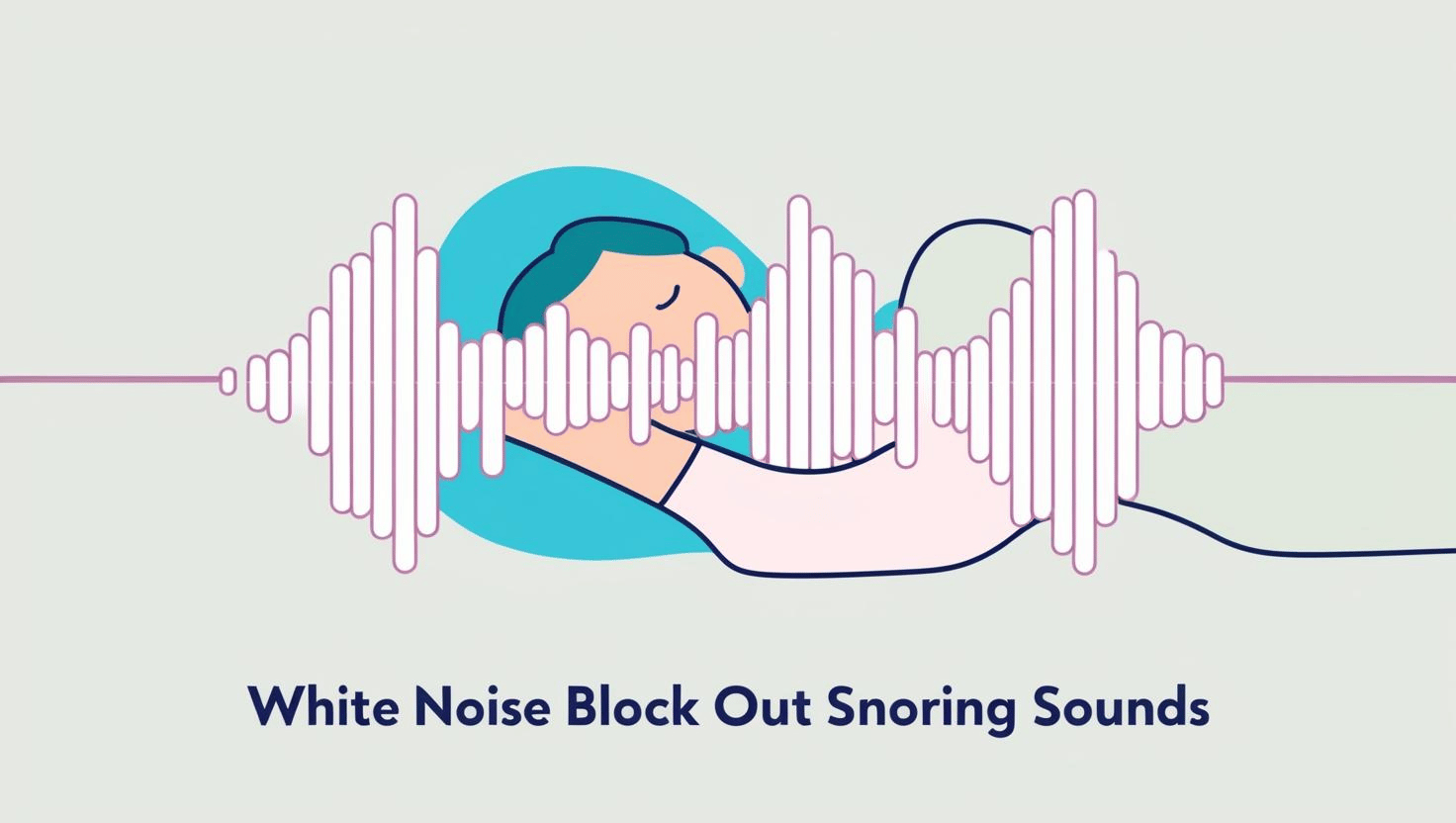Many people around the world suffer from snoring, and owing to this, millions of people around the world have a difficult time finding quality sleep. Some solutions have been provided to avoid and reduce this incident. One of the most recommended methods is the white noise. But does white noise actually mask snoring? Because of this, it is important to know the principal conceptions of the problem, explain what is snoring and white noise, how these work, and how they are related. We present the main aspects of white noise’s contact with snoring, the opportunities and drawbacks for its application, and awareness of the various approaches and strategies.
What is Snoring?
This is the sound made at nighttime when the passage of air is divided through the teeth, lips, tongue, and palate. The vocal muscles in the throat are uncontracting and constricting the air passage channels, causing vibration of surrounding tissues; this is called pathological cry. This is due to various factors like obesity, taking alcohol, sleeping position and nasal congestion. Although snoring is not a rare problem, the snorer and the partner have to suffer from poor sleep quality.
What is White Noise?

White noise is also an unmodulated, un-changing or steady sound which contains all the frequencies present in equal proportion and is generally created using electronic devices or computer software. It is called “white” because, compared to the radio wave frequencies, “white” encompasses all the visible spectrum, just as white contains all spectrum colour. The concept is applied in an effort to define the sound intensity balance across the entire frequency spectrum.
Scientific Information about White Noise and Snoring
Thus, white noise has been adopted as the ideal sound that eliminates unwanted sounds like snoring. The hissing constant continuous sounds can cover other disturbing sounds, making them hard to distinguish by the background silence.
Indeed, this technique stops the snoring sound as sometimes, when we use white noise, we cannot separate different frequencies. The brain’s auditory system disregards all extraneous loudness while concentrating on discrete sound patterns that demand consideration. The filtering of the snoring sounds is made difficult when the brain is exposed to steady background white noise, and in the absence of this noise, the brain is able to detect the snoring sound.
White Noise and Its Effectiveness in Suppressing Snoring
White noise can actually help mask snoring, and the amount of snoring will determine how helpful it is when the noise is at high volume, low volume, or of a different frequency. Some patterns of snoring are better masked than others: high pitch and intermittent snoring can be better masked with white noise than low pitch and constant snoring. Other conditions related to the effectiveness of white noise may also include the proximity of the snorer to the white noise source, the nature of the white noise machine being, and an individual’s tolerance to noise.
Advantages of White Noise as a Snoring Barrier
1. Improved Sleep Quality: White noise will assist in increasing the quality of their sleep by preventing the snoring sound from getting to the bed partner. This can let two people have a much sounder sleep that will help them avoid sleep disorders and a lot of health conditions linked to too little amount of sleep.
2. Affordability: White noise machines and applications are inexpensive, widely available, and cost-effective methods for those who want to block snoring.
3. Versatility: White noise does help with the snoring sound, but other sounds can be covered up as well, including partner movement, street noise and the sound of an on-running HVAC system.
Disadvantages of White Noise to Mask Snoring
1. Insufficient volume: White noise, in some instances, is not loud enough, especially in large rooms or when the sound of snoring is too loud. In those cases, there are probably better options, like using earplugs or noise-reduction headphones, for instance.
2. Individual differences: White noise efficiency for canceling snoring may significantly depend on the person’s noise tolerance level and preferred volume. Some people might feel comfortable with the white noise, while others still fully hear the snoring.
Other Alternatives Mentioned for Excluding Snoring

However, white noise can be used to eliminate the problem of snoring, but it is not always possible.
Some alternative solutions include:
1. Earplugs: These are small, friendly-looking funnel-like structures that can be inserted into the ears to exclude noise. One is especially effective in masking high-pitched snoring sounds and comes in different sizes and shapes to suit every ear form.
2. Noise-cancelling headphones: These headphones apply modern technology to cancel all background noises, such as snoring sounds. They can be especially handy for those who often have to stay in unfamiliar places and may have to block the snoring of a companion.
3. Nasal dilators: They are small devices that might aid in the opening of nasal passageways, hence decreasing snoring as much as breathing through the nose increases. Nasal dilators are more beneficial to people who are snoring due to blockage in the nasal passageway.
4. Positional therapy: Flipping over can decrease snoring, because switching from one position to another may lead to the narrowing of the airway and subsequent vibrations which cause snoring. Lifting the head and shoulders may facilitate a proper airway position, so that snoring may be minimized.
5. Lifestyle changes: Weight loss is another way of managing snoring because the excess pounds apply pressure on the airway and influence sleep quality; consumption of alcohol should also be limited because alcohol relaxes those muscles so necessary for preventing snoring; sedatives also disrupt the muscles ability to remain open.
